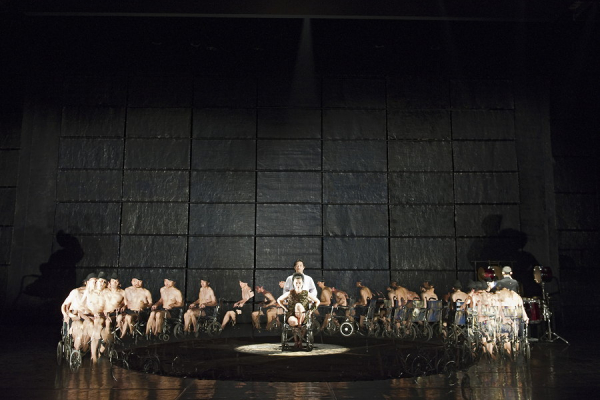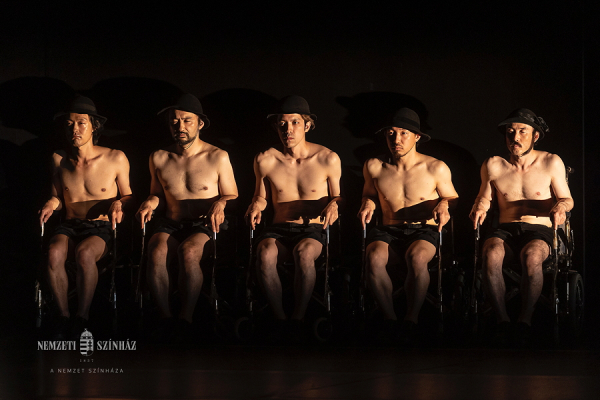
Electra MITEM
On his return from the Trojan War, Agamemnon, Electra’s father, is murdered by his wife, Clytemnestra, and her lover, Aegisthus. Clytemnestra and Aegisthus exile Orestes, Electra’s brother, and abuse Electra, who has become a prisoner in her mother’s house. Electra grieves for her father; her sole hope is that Orestes will return to avenge his death. Tormented by her dreams, Clytemnestra fears her son’s homecoming. Electra’s sister Chrysothemis, who is also confined by her mother, longs to marry and bear children. When Orestes arrives and reveals his true identity, Electra finally confronts the irony of her fate.
Suzuki Tadashi: Waiting For Orestes: Electra
All the world’s a hospital, and all the men and women merely inmates—this is the central belief that lies behind my theatre work. To put it another way, the theatre, for me, is a form of expression through which the playwright articulates his understanding of human beings as patients. Some playwrights may object to this concept, but I am convinced that all great plays can be interpreted this way. Several of my productions have been set in hospitals—more specifically, mental hospitals—and Electra is no exception. Deprived of all familial ties, my Electra lives in solitude, entirely speechless, in a mental asylum. She passes her time contemplating how she will exact revenge on her mother for abandoning her there. This aspiration, now a dark fantasy, is all the more passionate because of its sheer impossibility. I attempt to present this fantasy in a style that makes use, both visually and aurally, of certain traditional Japanese theatre techniques.
Why use this framework to tackle Electra’s suffering as described by the ancient Greek dramatists? The reason lies in my conviction that the spiritual destitution experienced by hospital inmates—trapped in a situation from which they cannot escape—is a universal phenomenon common to all times, races and customs. Seen in this perspective, the fate of Electra, the princess of Argos, is not simply culture–specific. I was driven to use such tactics by the urge to emphasize how no human creature, regardless of time or place, is immune to living a similarly atrocious and maddening life.
If, as I say, all men and women are patients in a hospital, it would be logical to assume that there are doctors and nurses as well, and hence some hope for recovery. From my point of view, however, this is not the case. In fact, the nurses may be just as ill as the patients. As for the doctors who are supposedly responsible for healing—they may not even exist. If they did, I don’t think, in the end, it would be possible to distinguish them from the patients. Still, even without help from doctors and nurses, human beings can at least doubt, and continue to doubt their personal level of illness. I suppose that great artists have always been great ‘doubters’ in this sense: their works are nothing but public records of how they have become ‘doubters’.
Once the world—we could even say the whole planet—becomes a hospital, there may be no hope for recovery. However, I believe that, even if all such efforts are in vain, it is still the responsibility of artists, living as creators in the contemporary world, to investigate what sort of mental diseases we human beings are trapped in.
Supported by the Agency for Cultural Affairs, Government of Japan



